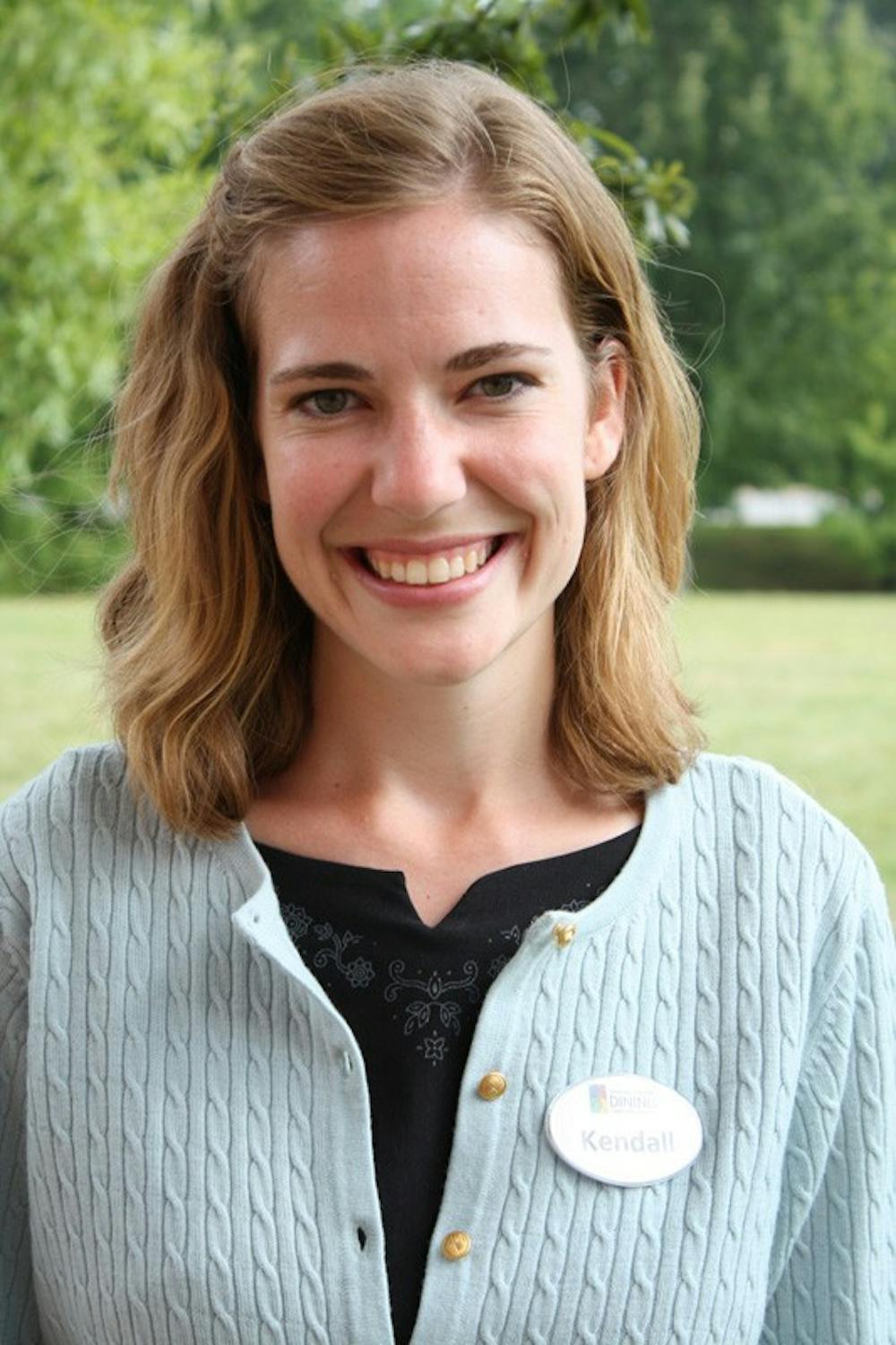Signaling an expansion of the University's efforts to embrace environmentally sustainable practices, Dining Services recently hired Kendall Singleton as its first Sustainability Coordinator.\nSingleton, who started work Aug. 17, will help to enable a higher level of student involvement in sustainable initiatives through new projects, Director of Dining Brent Beringer said. A trial of one of these initiatives, a switch to reusable to-go containers at dining halls, will begin this week, Beringer said.\nSustainability is about the environment and community, Beringer said, "but it's also about teaching students that it's possible to live sustainably, and that it can be cost-effective." Singleton will help Dining Services implement programs that reduce greenhouse gas emissions, waste generated by Dining Services' on-Grounds locations and the consumption of energy and water, Beringer said. By doing so, Beringer said he hopes this will lessen the University's impact on the environment and encourage students to treat the environment responsibly.\nSingleton graduated from the University in 2007, and as a student, she helped organize Dining Services' attempts at sustainable practices in 2006, she said. She initially discussed sustainability issues with Dining Services during one of its "Dorm Visits," when University representatives go to residence halls to discuss food-related issues with students. Her relationship expanded as she formed an advisory group of students who continued to contact Dining Services staff members to help improve their standards of sustainability, Singleton said.\nBeringer said this type of input from students remains vital to the department's agenda and goals. "There's no point in us telling students what to do," Beringer said. "It needs to come from them."\nIn the short term, Singleton said she will expand on past initiatives, such as the compost project for food waste at the Observatory Hill Dining Hall, which began last November, and also launch new projects, like the reusable to-go boxes. In the long run, Singleton will emphasize using local food to create "healthy, ongoing relationships with farmers."\nNew signs and brochures in dining halls lay out this approach toward sustainable dining, Singleton said. When purchasing produce, Dining Services staff focus primarily on whether it is grown locally. Next, staff consider whether it is in season, organic, humanely raised and fairly traded, Singleton said.\nOn the job less than two weeks, Singleton said logistics have been the most difficult hurdle to overcome thus far. Future plans for composting at Runk and Newcomb Dining Halls, she explained, involve issues with transporting composted waste, where to store the waste and how to comply with environmental regulations.\n"There really are an infinite number of variables," Singleton said.\nDespite these planning challenges, however, Singleton cited growing awareness of sustainability issues as a main reason why programs like composting and reusable to-go boxes have come to fruition.\n"[Sustainability] has caught on like a wildfire," Singleton said. "Nobody at U.Va is ignorant of its efforts, and we're capitalizing on this momentum to make bigger changes"
Dining hires Singleton for new Sustainability Coordinator position
Singleton will work to involve more students in sustainability initiatives, launch reusable to-go box project







